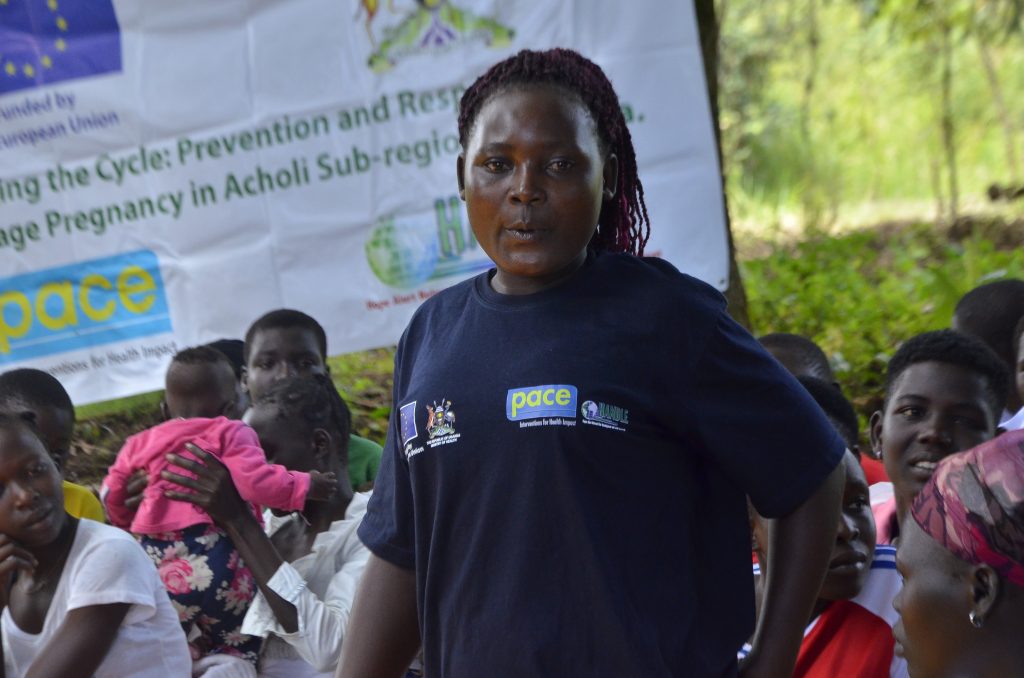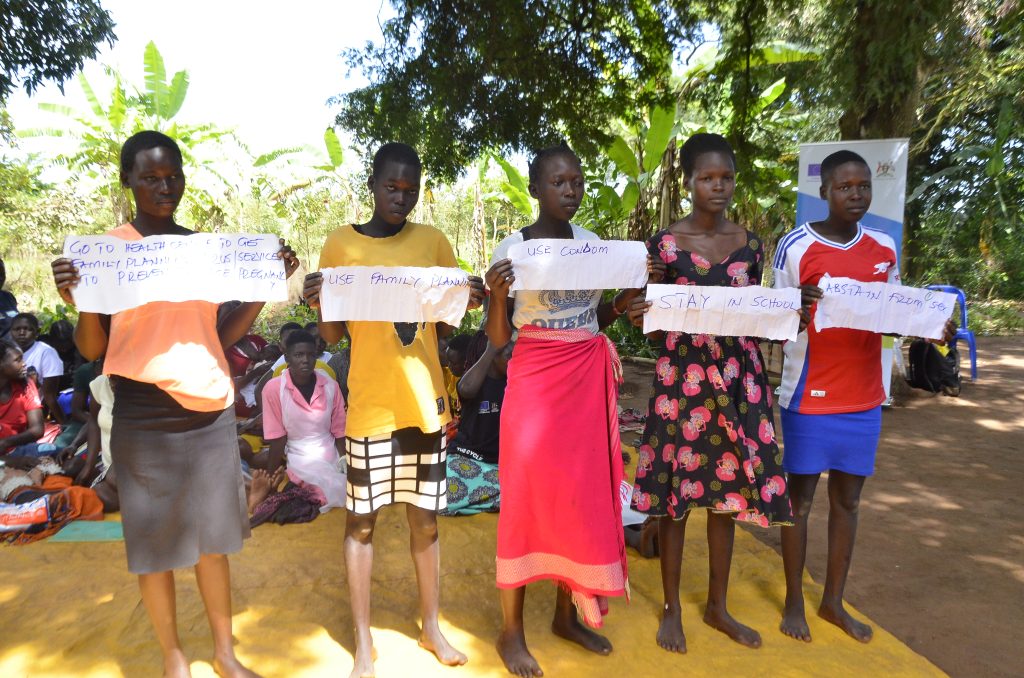
Nestled in the heart of Lukodi village, found in Bungatira subcounty, Gulu District, lives Apiyo Docus.
Apiyo Docus is a 17-year-old girl, the last born of 7 siblings, and a Primary Seven dropout. She grew up in a household led by her single mother, who struggled to provide for her and her siblings. Due to financial challenges, Apiyo was forced to drop out of school after her primary seven.
Apiyo is just like many other girls in Gulu district who drop out of school and are left vulnerable and exposed to negative peer influence.
According to a baseline survey conducted in Omoro and Gulu districts to assess the lived realities of adolescent girls aged 10-19, with a focus on the drivers and consequences of teenage pregnancy and access to SRHR information and services, education outcomes in Gulu District were particularly concerning. In Bungatira, Omel, and Patiko, the survey reported a 0% completion rate, with very low in-school attendance (5.7% – 12.2%) and dropout rates ranging from 16.7% to 18.5%. The findings further revealed that 77% of girls who had dropped out of school had experienced pregnancy.
The data tells a sobering truth: Apiyo could have easily been part of that 77%. She became known in her community for keeping bad company, which put her future at risk.
But Apiyo met her Guardian angel, a Nursing officer and mentor of a peer group from Bungatira Subcounty, who identified her during the formation of peer-to-peer groups and decided to mentor her. The formation of these groups was supported by PACE with funding from the European Union. PACE and HANDLE realized that there is a need to equip young leaders with the tools, mentorship, and platforms they need to drive change within their communities through the formation of youth clubs like the peer-to-peer groups.
Apiyo went on to attend a five-day training on the peer-to-peer approach, followed by further training on referral and reporting of Sexual Reproductive Health Rights and Services and Sexual Gender Based Violence. These trainings equipped her with knowledge on SRHR , leadership skills, and most importantly, confidence.
Apiyo was selected by her peers to serve as their leader. With her skills, she began mobilizing her peers every Saturday at a safe space in Lukodi, where she led discussions on the dangers of early pregnancy and Adolescent growth and development with her mentor stepping in to provide some support on technical aspects and more challenging issues
To strengthen the group’s impact and sustainability, she formed a team of five adolescents who served as committee members and supported her in managing the group activities. Using drama and interactive methods, Apiyo has made learning fun and relatable, inspiring many adolescents to adopt healthier behaviors. This group of young adolescents now dreams of performing dramas on the prevention of teenage pregnancies in schools and at national events to reach out to more adolescents in the districts.
“Docus has completely changed the way she carries herself, showing responsibility and focus. Community members and religious leaders have also recognized her growth, with her church entrusting her to teach Sunday school classes,” says her mother.

Today, Apiyo is not only a peer leader but also a role model among her peers. She heads the Rubanga Twero peer group of 25 adolescent girls.
She is deeply grateful to PACE and the European Union for the opportunity that gave her a second chance to redefine her path. Her journey demonstrates how investing in adolescents can turn vulnerability into leadership and give them hope for their future.
Story compiled by Joy Eleng-Project Officer, Gulu
Edited by Angel Nantege Donna-Communications Volunteer.
